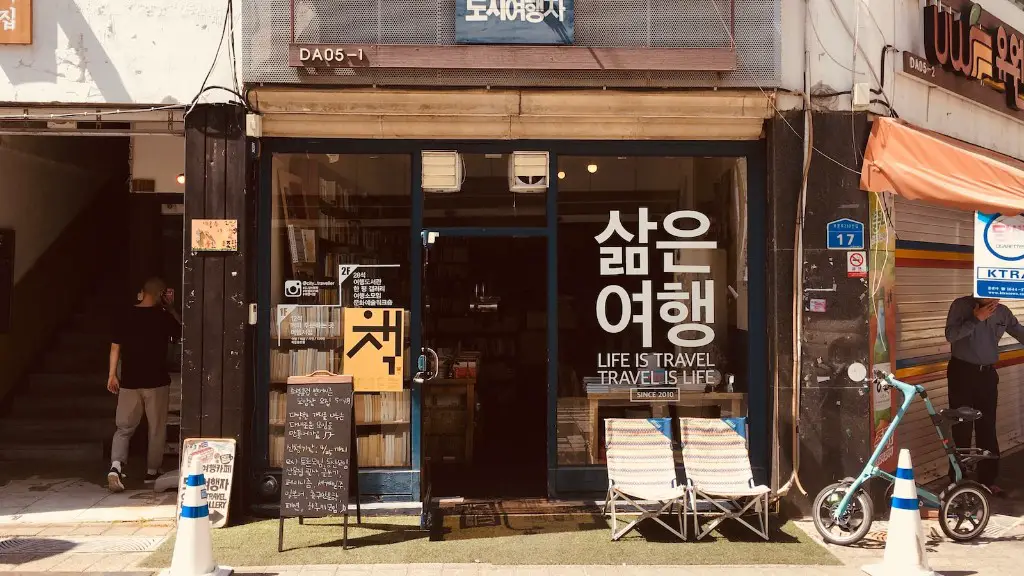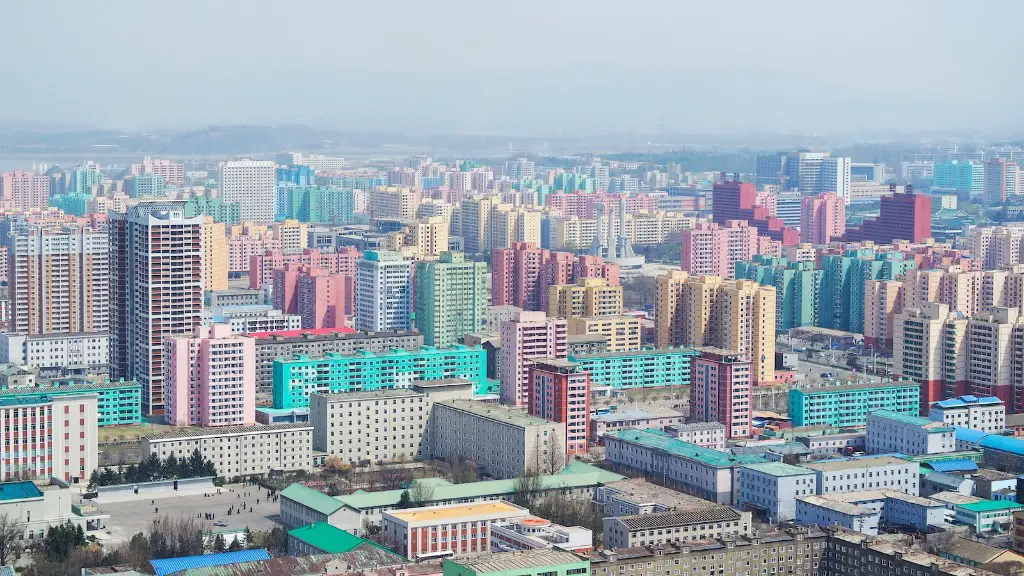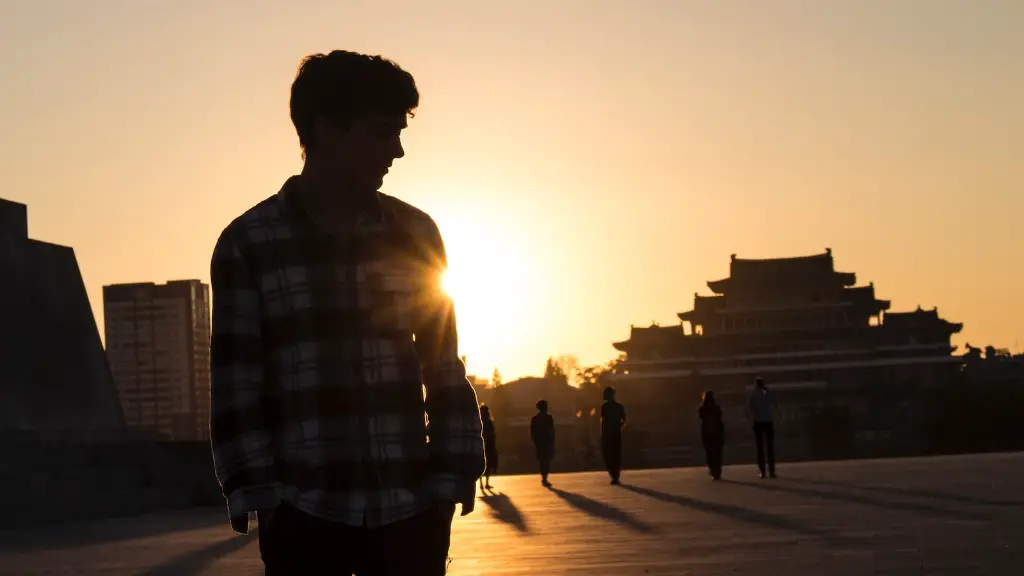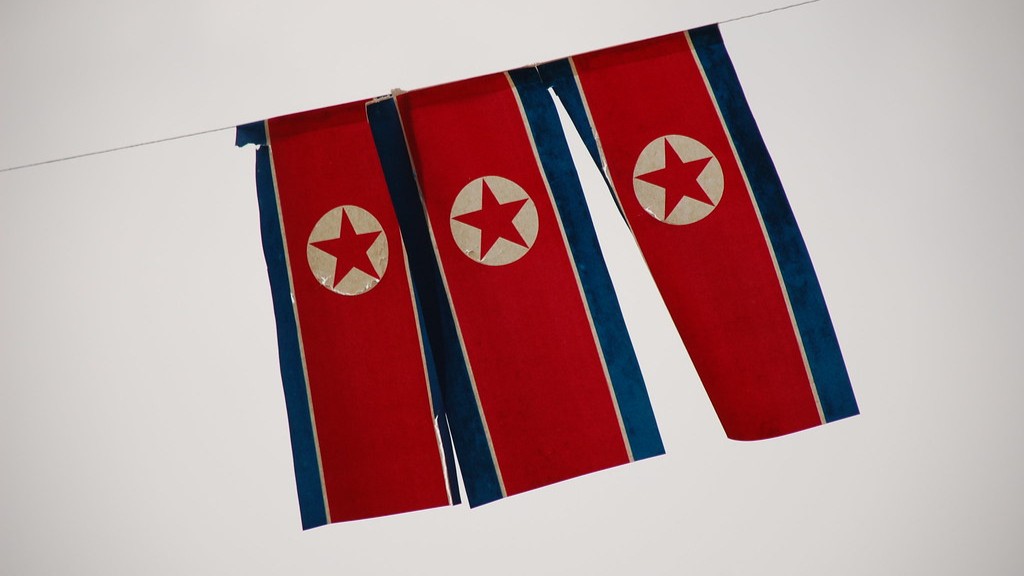North Korea is widely viewed as one of the most repressive, authoritarian countries in the world. The country is ruled by an absolute monarch and a one-party system that represses all forms of dissent. It is known for its brutal labor camps and its nuclear weapons program, which has been consistently condemned by the international community. North Korea also has a long history of human rights abuses and has isolated itself from the outside world.
According to a 2018 report from Freedom House, North Korea is the world’s least free country. Political dissent is suppressed and there is no freedom of speech or of the press. This lack of freedom makes it difficult for North Koreans to access reliable and accurate information about their country or the wider world.
North Korea also lacks basic economic freedoms, and the state strictly controls the economy. North Koreans have very limited access to goods, services, or foreign currencies. As a result, the country’s economy is extremely underdeveloped and the majority of people struggle to survive.
The human rights situation in North Korea is dire. Reports of torture and brutal living conditions in the country’s labor camps are largely ignored by the international community. North Koreans are also denied basic civil liberties, such as freedom of religion and assembly.
The North Korean government is also known for its use of propaganda to maintain power. It regularly spreads false information about its own and other countries in order to promote its domestic agenda. This propaganda is spread through state-run media outlets and often disseminated to children in the form of mandatory classes.
The country’s nuclear weapons program is also a source of international tension and has been widely condemned by the global community. The Kim Jong Un regime has repeatedly tested nuclear weapons, which serve as a show of force and defiance towards its enemies. Unless the situation changes, this nuclear arms race could lead to conflict and destruction.
Denial of Humanitarian Aid
North Korea has denied humanitarian aid to its people. This has resulted in a dire humanitarian crisis and thousands of lives have been lost as a result. The COVID-19 pandemic has further exacerbated the situation, and the country’s healthcare system is unable to cope with the demands of the virus.
The North Korean government has also been accused of diverting aid to its elite and military leaders. This has caused massive inequality, with those in power continuing to enjoy a life of luxury while the population suffers in poverty.
The international community has repeatedly called on North Korea to accept aid and end its isolation, but the government has ignored these calls. This has further worsened the country’s economic and humanitarian crisis and left the population with little hope of improvement in the near future.
Lack of Freedom of Travel
North Koreans are not allowed to travel abroad freely, and those who attempt to do so risk severe punishment. This lack of freedom restricts the population’s access to education, healthcare, employment opportunities, and more. The government can also track those who attempt to leave the country, causing many North Koreans to stay in the country out of fear.
The North Korean government often blames foreign powers for the lack of freedom and prosperity in the country. This has led to anti-Western sentiment among the population and has caused further isolation from the outside world.
The government has also attempted to control the population by limiting access to the internet. The internet is heavily censored and North Koreans are only able to access state-controlled websites. This has resulted in a lack of knowledge about the world, which has been used by the government to maintain control.
Oppression of Dissenters
The North Korean government is known for its brutal repression of political dissenters. Political opponents are often detained and disappear into labor camps. Those who are sent to these camps face prison sentences, torture, and sometimes even execution.
North Koreans who attempt to defect to another country often face harsh punishments upon returning to North Korea. They are often sent to prison camps and their families are often targeted as well. This further exacerbates the cycle of fear and repression in the country.
The North Korean government also uses foreign aid to barter for access to strategic resources, such as oil and natural gas. This has resulted in vicious cycles of exploitation and has further isolated the country from the outside world.
North Korea is a bad country for numerous reasons, from its nuclear weapons program to its lack of freedoms and civil liberties. The government’s repressive rule has caused immense suffering for its people and has greatly impeded the country’s economic and political progress. Unless this situation changes, it is unlikely that the country will become any better in the near future.
Economic Inequality
North Korea has one of the highest levels of economic inequality in the world. This unequal distribution of resources has led to mass poverty and has prevented the majority of the population from escaping poverty. The North Korean government has also been accused of using foreign aid to strengthen its military and elite circles, while ignoring the needs of its people.
Due to the North Korean government’s isolationist policies and heavy restrictions on trade, the country is also in a difficult position economically. The North Korean won is not a freely convertible currency, meaning that it is difficult for North Koreans to access foreign currencies and international markets. This has caused economic stagnation and has led to further poverty and inequality.
The economic inequality in North Korea is also linked to its political inequality. Those in power are able to use their resources for their own benefit, leaving the majority of the population with very little. This has resulted in further poverty and has caused a persistent cycle of suffering for the country’s people.
Lack of Media Freedom
The North Korean government has consistently restricted the media and access to information. This censorship has prevented North Koreans from accessing accurate, reliable news and information about the country or the wider world. The government has also been accused of spreading false information and using propaganda to maintain control.
Due to this lack of information, North Koreans are unable to express their opinions or share their thoughts and ideas without fear of reprisal. This has caused an atmosphere of fear and mistrust and has further perpetuated the government’s oppressive rule.
The media environment in North Korea is also heavily controlled by the state. All media outlets are state-run and heavily censored, meaning that the information that North Koreans access is often not accurate or reliable. This further contributes to the population’s lack of information about the outside world.
The internet is also heavily restricted in North Korea, and access to foreign websites is often blocked or monitored. This has restricted North Koreans’ access to news and other forms of information, and has further limited the population’s access to accurate and reliable information.
Conclusion
North Korea is a bad country for many reasons. It is ruled by an oppressive and authoritarian regime that suppresses all forms of dissent. The economy is heavily controlled and the majority of the population lives in poverty. The human rights situation is dire and the country’s nuclear weapons program is a source of international tension. North Koreans also have limited access to information, goods and services, and are often denied basic civil liberties. Unless this situation changes, it is unlikely that the country will become any better in the near future.





